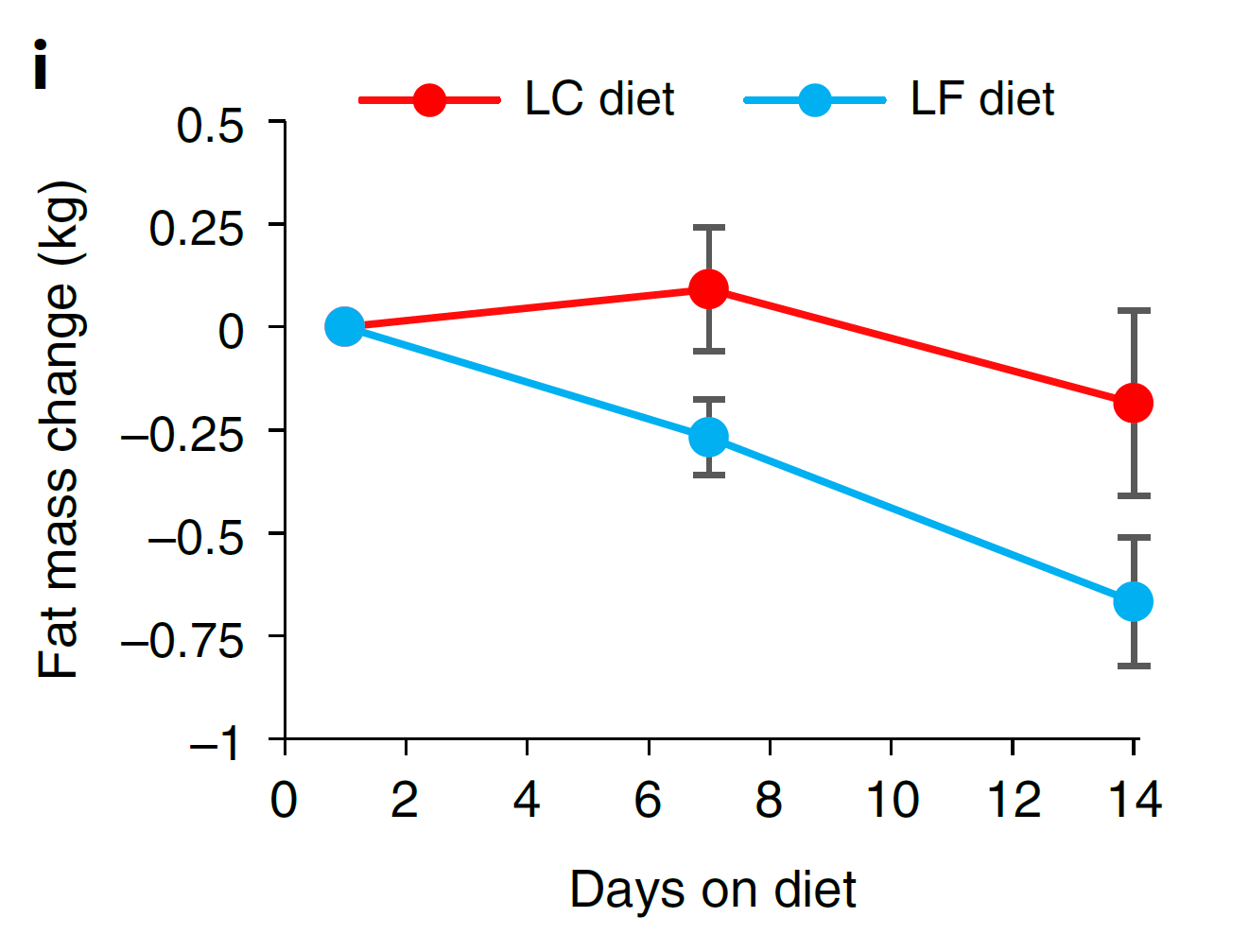The Keto vs. Plant-Based Showdown Just Happened at the NIH
/The highly-rigorous trial suggests that a whole-foods, plant-based diet may be the superior choice.
There is a right way and a wrong way to do a diet study. The wrong way is to send a survey to a few thousand people asking them to recall what they eat and linking those responses to outcomes down the road. That’s how we get studies that tell us that eggs kills you, or keep you healthy, or something.
The right way is to do what the good folks at the NIH did in this study appearing in Nature Medicine – lock people in a room for 28 days and measure absolutely everything.’
My best attempt at the Carb-insulin obesity model
The real driving force for this study are questions about a ketogenic diet – what started with Atkins gets reborn every few years with a different name but the logic is basically the same – carbs are the enemy.
They increase insulin secretion, which leads to fat accumulation, and the theory goes, to subsequently higher food consumption. In other words, carbs trap us in a vicious cycle of eating, secreting insulin, and eating more, leading to our current obesity epidemic.
But that’s not the only theory. Many folks believe think it’s not the dietary components that matter, it’s how we take them in. Ultra-processed foods with enhanced flavors and salts and sugars overwhelm our senses and deliver calories in a dense form that basically leaves us in positive energy balance and we gain weight. That those ultra-processed foods are carb-heavy has nothing to do with it.
So the researchers decided to untie this knot. 20 adults were enrolled in a randomized crossover study. They would spend 28 days total in the metabolic unit of the NIH in Bethesda. For two weeks they would either be on an animal-protein heavy keto diet or a low-fat / high-carb diet that was mostly vegetable-based. Then, they’d switch to the other diet.
It’s important to note that this was an ad libitum eating study. They were given way more food than they could want and told just to eat whatever they felt like. They were also told not to try to lose weight or anything – just behave normally.
While a ton of parameters were measured – and we’ll hit on quite a few – the primary outcome was how many calories people ate. And the results were pretty stark. On average, the 20 individuals ate around 700 fewer calories per day when they were on the low-fat compared to the keto diet.
That’s a pretty big number. Note that this started right away – on day 1 of the low-fat diet. There’s not a ton of evidence that something interesting was happening due to the components of the diet – people just didn’t eat as much, calorie-wise
Why did they eat less? It wasn’t due to the low-fat diet being yucky. Assessments of food “pleasantness” and “familiarity” were similar.
But one key thing is that the energy density of the low-fat diet was much lower – veggies just don’t have the calories per gram that bacon does. As such, the calories per minute ingested were higher on the keto diet.
OK – so given that people ate way less calories while on the low-fat diet, did they lose more weight?
Weirdly, no. In fact, individuals on the low-carb diet lost more weight – particularly during that first week.
This is a phenomenon that has been seen before in very low-carb diets and there are varying explanations for it. The best explanation I have is that without carbs, a bunch of glycogen stores get broken down, releasing water, which is then lost in the urine.
This is supported by the fact that the weight loss in the keto diet didn’t seem to be very good weight loss. DXA scans revealed that the weight that was lost in the Keto group was mainly from loss of muscle – weird considering the higher protein intake with that diet. The more mild weight loss in the low-fat group was mostly due to loss in fat mass.
Now it’s not all sunshine and veggie medleys for the low-fat diet. As expected, the high carb content led to significantly higher glucose levels and glucose variability. Both have been linked to heart disease.
But look, the truth is, its really hard to adhere to either of these diets if you’re not locked into a metabolic chamber at the NIH. It’s notable here that BOTH groups lost weight. And perhaps we should be looking at what is the same about these diets rather than what was different. Neither contained highly-processed foods. Regardless of the macronutrient content, the food in these diets was, well, real – and I’ll be honest here – not reflective of what my pantry looks like. Maybe the goal shouldn’t be to lock ourselves into a preference for one macronutrient over another, but to stay away from the foods that have been specifically designed to make us eat more than we should.
A version of this commentary first appeared on medscape.com.





